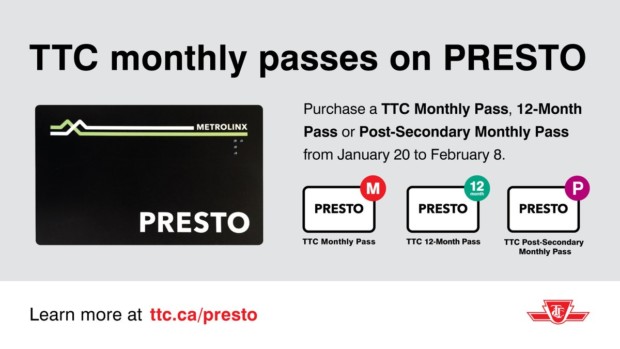


By Ryan Hanna, for Skedline.com
At a meeting on Thursday, the TTC board voted unanimously to approve a 10-cent fare increase. The price for cash fares will remain the same, but PRESTO fares will rise to $3.10 for adults, with student and senior monthly passes rising by $5.70 and adult passes increasing by $4.90.
In a presentation, staff detailed that they will need $33.5 billion in the next 15 years for repairs alone, and that 70 percent of capital projects (ie. the Relief Line, Scarborough subway) are unfunded.
This price hike will raise an estimated $25.8 million for the transit agency, and it is asking for an additional $22 million in funding from the city to cover things like the new 2-hour transfers. Though there will be around 700,000 fewer riders due to the increase in fares, the increased prices will offset this loss.
With massive delays on the system stretching all the way from Museum to Wilson stations on Thursday, not everybody thinks that riders should be on the hook for more money.
“The recent delays, if anything, should be a wake-up call to Mayor Tory and Premier Doug Ford. Riders are paying the price for the chronic underfunding the system is experiencing and will continue to do so until the province and city fund the TTC properly,” said Shelagh Pizey-Allen, executive director for TTCriders, an advocacy group, campaigning for world-class transit in Toronto.
The city receives a subsidy of around $0.90 per rider, while Montreal, Calgary and Vancouver receive $1.16, $1.69 and $1.86 respectively, according to a document by CodeRedTO, another advocacy group. In the GTHA, Hamilton receives $1.90 per rider, while Mississauga gets $2.3 and York Region receives a whopping $4.56.
The TTC is the least-subsidized major transit system in both Canada and the U.S., according to the document, but a $30 million increase to the budget will barely put a dent in the agency’s financials.
Not everybody is happy with the change, with students who have to purchase monthly seeing the biggest increase.
Ty, a film and media production student at Humber College, sees both sides of the debate. “It’s difficult because I understand that more money is needed, but it hurts my wallet too. If I’m gonna be paying more, the government should chip in more money too.”
Sophie, a Humber student studying theatre performance, had a different opinion. Commuting from Scarborough, she faces delays on the Bloor-Danforth line on a regular basis.
“Well I’m definitely not happy about paying more, but at least they won’t be cutting the number of buses or trains running, which I guess makes up for it,” she said. “Still not happy that I have to be paying more in the first place, especially with the delays that I’m constantly having to put up with.”
The fare increase will start on April 1, 2019 and is the first increase since January 1, 2017 when John Tory put a fare freeze for 2018 into place.
